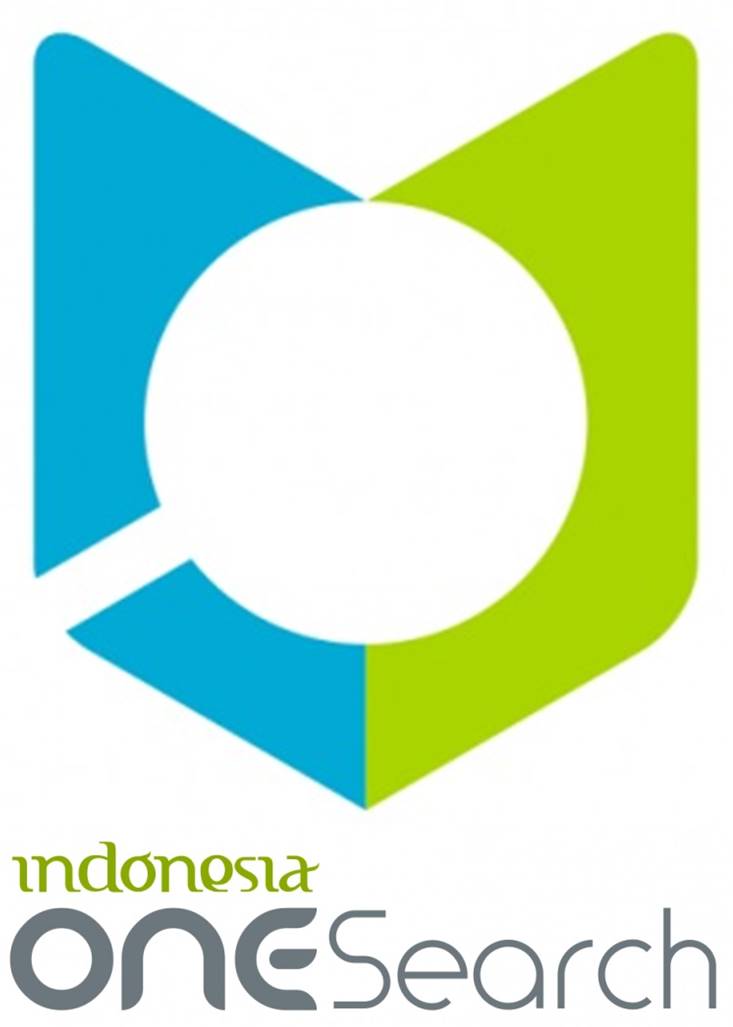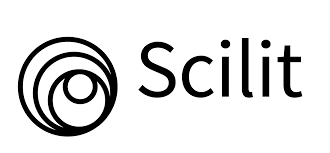collections_bookmark Focus and Scope
Focus n scope
The Malahayati Midwifery Journal provides a platform to publish in the field of midwifery
and the journal also seeks to advance the quality of research by introducing
or outlining new methods in the field of midwifery health for publications
including midwifery and core health sciences.
This journal contains manuscripts on Health Sciences which include
: Midwifery care, Nutrition, Psychology, community midwifery,
Reproductive health, Elderly Health, Public Health, medicine.
create_new_folder Section Policies
Artikel
device_hub Peer Review Process
The manuscript will be reviewed by the editor.
The editor will decide whether the script is appropriate
with scope and focus and appropriate for the reviewer.
In this section we take 6 working days.
Articles that pass the initial review will
assigned to at least two reviewers (blind peer review).
Based on the review the editor will first make an editorial decision.
There are three possible editorial decisions
(1) the manuscript is accepted, (2) changed and
resubmitted, or
(3) rejected. the reviewer must be careful the possibility exists
plagiarism.
copyright Open Access Policy
This journal provides open access which in principle makes research freely available to the public and will support the largest global exchange of knowledge.
bookmark_border Frequency Publication
This journal is published every quarter of a year
(January, April, July and October) published by
Institute for Research and Community Service
(LPPM)
Malahayati University
bookmark_border Open Access Policy
This journal provides direct open access
to its content with the principle that making research
freely available to the public supports exchange
greater global knowledge
bookmark_border Publication Decision
The editors are responsible for deciding which articles to publish.
Editors comply with journal editorial board policies and require
legal requirements as applicable to defamation,
copyright infringement, and plagiarism.
Editors like to discuss in teams to make final decisions.
bookmark_border Level of confidence
Regularly evaluate articles as
intellectual property with justice
without discrimination against race, sex,
sexual orientation, religious belief, ethnic origin,
citizenship, or the author's political philosophy.
bookmark_border Confidentiality
The editorial team is prohibited from sharing
any information
about the article to anyone except for
author himself,
reviewers, and other editorial advisors.
Ensuring the confidentiality of the author
is the right to dignity.
bookmark_border Disclosure and Conflict of Interest
Unpublished articles wish to return to the author,
delete from database and prevent misuse
one of the articles in the future
bookmark_border Reviewer's Task
Contribution to Assignment Editorial Decisions
as a peer review to help editors in making
editorial decisions and through editorial can
give feedback on suggestions or recommendations
to the author to improve the quality of the article.
Speed After receiving the article,
the editor will immediately process and the author can
follow the management process path to the final result
publication. Confidentiality Article has been submitted to
during the process, handling as
secret document. Review and editorial board
in charge of an article.
Standards of Objectivity The review process is carried out regularly
objective. Personal criticism of the author is prohibited.
The arbitrator assesses the article as considering
their views with clarity and argument
supporters. Reviewer Source Acknowledgment
identify relevant and appropriate articles,
supported by quotes. All observed statements,
derivation, or argument reported accompanied by
relevant quote. A reviewer warns
to keep paying attention when finding
similarity or
substantial overlap. Openness and
Conflict of Interest Information or ideas
privileges obtained through regular peer review
carried out in secret and prevent the use of
Reviewers continue to pay attention to conflicts of interest
resulting from competition, collaboration, or
co-author, company
bookmark_border Writer's Task
Reporting standards Authentic articles presented
by an author in reference to research results,
find accurate, reliable data
and accountability carried out as well as objective discussions
about its significance. Not enough to load details
and reference maybe others easily
to find references.Data manipulation process
considered a violation, behavior that
unethical and unacceptable. Access and Retention
Data Author provides raw data of the relationship
with articles for editorial review,
and also provide public access
to the data (consistent with Statement
ALPSP-STM on Data and Databases),
published author articles,
the author must save the data.
in presenting information when there is a seminar presentation event.
Originality and Plagiarism The authors ensure
that the article written is original, from own property
and if the author has used someone else's statement,
need a proper quote.
Multiple, Redundant, or Concurrent Publications
Authors are prohibited from publishing the same article in several journals,
for exhibiting unethical and unacceptable behavior.
Source Acknowledgment The author's attitude must acknowledge the paper
others, also need some citations from reputable journals.
Essays from Research Articles Essays that must be limited,
only those who have a contribution in the research process
such as the conception, design, execution, or interpretation of results.
Contributors to be mentioned as co-authors.
The lead author ensures that all co-authors
have an agreement, the final version of the article and will publish.
Hazards and Human or Animal Subjects During the project
involves chemicals, procedures or equipment that are of the
harmful properties inherent in its use,
the author must be clearly explained and identify
it's in the script. Disclosure and
Conflict of Interest Authors are asked to disclose
clearly regarding conflicts such as financial conflicts,
substantive conflicts of interest that may be construed
to influence outcomes over the course of the project. All financial resources support
in the project need to be disclosed. Fundamental error
in a published work When an author finds an error
or significant inaccuracies in his published work,
It is the obligation of the author to immediately notify the journal editor or publisher and
work with the editor to retract or correct the paper
bookmark_border Screening for Plagiarism Policy
The Malahayati Midwifery Journal has a screening policy for plagiarism.
We use Crossref Similarity Check Powered By Ithenticate
to check article authenticity and track duplicate content.
The Malahayati Midwifery Journal will immediately reject papers
that lead to plagiarism or self-plagiarism.Before submitting articles to reviewers,
they are first checked for similarity/plagiarism tools,
by members of the editorial team.
Papers submitted to the Malahayatai Midwifery Journal
must have a similarity rate of less than 20%.
Plagiarism is exposing another person's thoughts
or words as if they were your own, without permission,
credit or acknowledgment,
or for failing to properly cite sources.
Plagiarism can take a variety of forms,
from literal copying to paraphrasing someone else's work.
In order to properly assess whether an author has plagiarized,
we emphasize the following possible situations:
An author may actually copy another author's work- by copying verbatim,
in whole or in part,without permission, acknowledging or citing the original source.
This practice can be identified through comparing the original source
and manuscripts/works that are suspected of plagiarism.
Substantial copying implies for an author to reproduce
a large part of another author, without permission, acknowledgment or citation.
The term substantial can be understood both in terms of quality as well as quantity,
which is often used in the context of Intellectual Property.
Quality refers to the relative value of the copied text in proportion to the work as a whole.
Paraphrasing includes taking ideas, words or phrases from sources
and arranging them into new sentences in writing.
This practice becomes unethical when the author
does not properly mention or does not acknowledge the original work/author.
This form of plagiarism is a more difficult form to identify.
bookmark_border Indexing and Abstract
Malahayati Journal of Midwifery indexed by: Google Scholar
bookmark_border Revocation
Papers published in the Malahayati Midwifery Journal will be
considered for withdrawal from publication if:They have clear evidence
that the findings are unreliable, either as a result of a breach (e.g. data fabrication)
or honest error (e.g. calculation error or experimental error)
findings have previously been published elsewhere without
crossreferencing, permission or proper justification (i.e. redundant publication)
it constitutes plagiarism it reports unethical research The withdrawal mechanism follows
Publication Ethics Committee Retraction Guidelines (COPE) which can be accessed at https://publicationethics.org/files/retraction%20guidelines.pdf
bookmark_border Posting Your Article Policy
Understand the article policy and posting of the Malahayati Midwifery (JKM)
\ journal articles for each stage of the article life cycle.
Prior to submission, authors can post their articles anywhere at any time,
including on preprint servers such as arXiv.org.These do not count as previous publications.
Once submitted to JKM Authors can share or post versions
of their submitted articles (also known as preprints)
in the following ways: On the author's personal website or
on the website of their employer On the website of an institution or funder if needed
In the author's own classroom use About Scholarly Collaboration Networks (SCNs) signatories
International Scientific, Technical and Medical Association Sharing Principles
(https://www.stm-assoc.org/stm-consultations/scn-consultation-2015/)
The following text must be included on the first page of the article submitted
when it is first posted in one of the above outlets:
“This work has been submitted to the Malahayati Midwifery Journal,
http://ejurnalmalahayati.ac.id/index.php? journal = hlstk & page = login for possible publication ".
After receiving the JKM If an author previously posted a submitted
version of the article in one of the following locations,
he must replace the version that was sent with the version of the
JKM that was received. No other changes can be made to the accepted article.
Author's personal website Employer's website arXiv.org Funder Repository *
Last published article When this article is published, the version posted must be updated
with complete citations to the original Malahayati Midwifery Journal, including the DOI.
He must replace the accepted version with the published version of the JKM article.
This article will be followed by a statement regarding HJK's copyright notice at http://ejurnalmalahayati.ac.id/index.php/kebidanan/manager/saveSetup/2
bookmark_border Publication Ethics
Writer's Ethics
1) Reporting; the author must provide information about the process and results of his research and/or study to the editor in an honest, clear, and comprehensive manner, as well as keep data on community service and studies properly and safely.
2) Originality and plagiarism; the author must ensure that the manuscript that has been sent or submitted to the editor is an original manuscript, written by the author himself, and comes from his own ideas and ideas, and is not the result of plagiarizing the written work or ideas and or ideas of others. Authors are strictly prohibited from changing the names of the cited reference sources to other people's names.
3) Repeat delivery; the author must inform that the manuscript sent or submitted to the editor is a manuscript that has never been submitted or submitted to a journal publisher or other publication. If a "redundancy" is found in sending the manuscript to another publisher, the editor will reject the manuscript sent by the author.
4) Author status; the author must inform the editor that the author has competence or qualifications in a particular field of expertise in accordance with the published field of science, namely the fields of nursing, midwifery, public health and medicine. Authors must include affiliation, namely the origin of the author's agency. The author who sends the manuscript to the editor is the first author (co-author), so that if a problem is found in the process of publishing the manuscript, it can be resolved immediately.
5) Error writing script; The author must immediately inform the editor if errors are found in the writing of the manuscript, both the results of the review and the edits. The writing errors include writing names, affiliations or agencies, quotes, and other writings that can reduce the meaning and substance of the manuscript. If that happens, the author must immediately propose improvements to the manuscript.
6) Disclosure of conflicts of interest; editors must understand the ethics of scientific publications above to avoid conflicts of interest with other parties, so that the process of publishing manuscripts runs smoothly and safely.
Reviewer Ethics
1) Objectivity and neutrality; reviewers must be honest, objective, unbiased, independent, and only side with scientific truth. The process of reviewing the manuscript is carried out professionally without distinction of gender, business side, ethnicity, religion, race, inter-group, and nationality of the author.
2) Clarity of reference sources; the reviewer must ensure that the source of the reference/text citation is appropriate and credible (accountable). If errors or irregularities are found in the writing of reference sources/quotes, the reviewer must immediately inform the editor for corrections by the author according to the notes from the reviewer.
3) The effectiveness of peer-review; the reviewer must respond to the manuscript that has been sent by the editor and work in accordance with the specified peer-review time (maximum 3 weeks). If additional time is needed in reviewing the manuscript, it must immediately report (confirm) to the editorial secretariat.
4) Disclosure of conflicts of interest; reviewers must understand the ethics of scientific publications above to avoid conflicts of interest with other parties, so that the process of publishing the manuscript runs smoothly and safely.
Journal Management Ethics
1) Decision making; the journal manager or editorial board must describe the mission and goals of the organization, especially those relating to policy setting and journal publishing decisions without any particular interest.
2) Freedom; Journal managers must give freedom to reviewers and editors to create a comfortable working atmosphere and respect author privacy.
3) Guarantees and promotions; the journal manager must guarantee and protect intellectual property rights (copyright), and be transparent in managing funds received by third parties. In addition, journal managers must publish and promote the results of publications to the public by guaranteeing the benefits of using the manuscript.
4) Disclosure of conflicts of interest; Journal managers must understand the ethics of scientific publications above to avoid conflicts of interest with other parties, so that the manuscript publishing process runs smoothly and safely. (LIPPI, 2014)
bookmark_border Publication Fee
Publication fee of Rp. 513,500
The fee is without printing, if you want to print, the journal fee is Rp. 150,000 per journal without shipping costs







